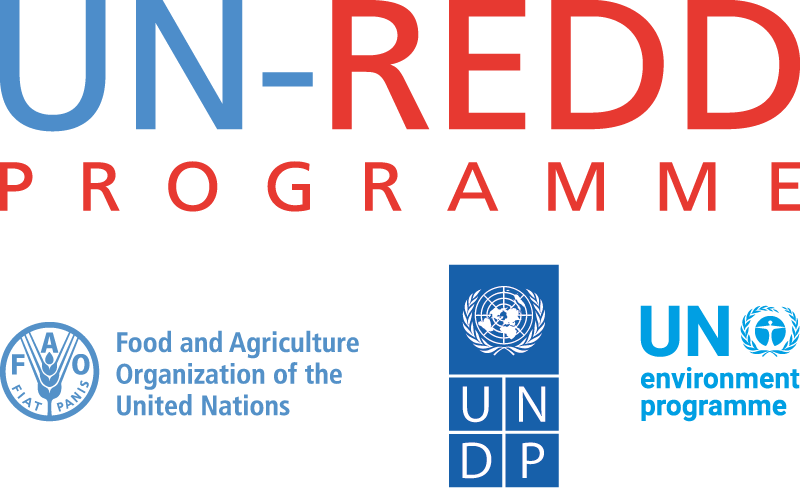INTRODUCTION
A new UN-REDD Programme Technical Assistance (TA) for the Lower Mekong region, titled Sustainable Forest Trade in the Lower Mekong Region (SFTLMR)4, was approved by the UN-REDD Executive Board in August 2020. The technical assistance is implemented in the five Lower Mekong countries, namely Cambodia, Lao PDR, Myanmar, Thailand, and Viet Nam. It aims to increase national commitment to legal and sustainable trade and investment in wood products in the Lower Mekong Region and supports countries to reduce the likelihood of forest crime and illegal logging by strengthening forest and land use governance, ultimately reducing deforestation and forest degradation. The initiative is intended to promote dialogue, policy alignment, and inter-compatibility within the Lower Mekong Region, boost cooperation between the region’s countries and China, and improve the sustainable management of forests across the region and beyond. A dedicated webpage for the initiative has been established on the UN-REDD website.
INCEPTION PERIOD
The technical assistance has been designed for an initial implementation period of two years (2020-2021) with the potential for a three-year second phase. The initiative concluded its inception period at the end of 2020 with the submission of an inception report.
During the inception period, the technical assistance rationale, outcomes, outputs, and activities were consulted with stakeholders, including government and non-government partners, in the target countries. National consultations were organized in Lao PDR, Thailand, and Viet Nam in 2020, with consultations in Myanmar and Cambodia taking place in early 2021. All countries have appointed a government focal point.
The inception period also saw the cultivation of important partnerships with regionally or globally active partners (see the section on partnerships below). The part virtual, part in-person regional partners’ dialogue held on 20 November 2020 brought together key national stakeholders and regional and global partners to reach a shared understanding of the initiative’s vision and main areas of work and introduce national priorities as consulted throughout the inception period.
Finally, in 2020, regional and national coordinators and project personnel were recruited. Together with the existing UN-REDD team of experts and technical advisors, they represent a wide range of expertise and networks related to forest trade, sustainable forest management, REDD+, FLEGT, certification, and financing.
CHALLENGES AND SOLUTIONS
Good progress has been made to date, although the inception period has not been without challenges. The travel limitations brought about by the COVID 19 pandemic constrained discussions and outreach to web-based tools, with their associated difficulties.
Engagement with China has made slow progress, as this is a new area of engagement for the UN-REDD Programme overall; however, a number of strategic entry points for engagement with China have been identified. These include potential partnerships with the Forest Stewardship Council (FSC) to connect regional producers and buyers of certified forest products and with the International Tropical Timber Organization (ITTO) to reach more Chinese companies via the Global Green Supply Chain (GGSC) network, as well as engagement with the Association of Southeast Asian Nations (ASEAN) building on the ASEAN Guidelines on Promoting Responsible Investment in Food, Agriculture and Forestry. Engagement with China will be a key area of focus in the months to come.
Discussions with government institutions in the target countries have pointed to the use of the term ‘forest crime’ in the initiative’s title posing barriers to government engagement, particularly acutely in some countries. Through discussion with donors and stakeholders, it was agreed to adopt a shorthand title, ’Sustainable Forest Trade in the Lower Mekong Region (SFT-LMR)’, while the official title remains ’Addressing Forest Crime through Improved Governance in the Lower Mekong Region’ and the project team and partners remain well cognizant of the underlying objective to address forest crime.
Further information on identified challenges and mitigation measures can be found in the inception report.
GENDER AND SOCIAL INCLUSION
Gender balance and women’s participation were measured and promoted in all inception and consultation meetings. Women’s participation was recorded at between 28 and 43 percent in the three national consultation meetings and the regional partners’ dialogue held in 2020, despite forestry typically being a male-dominated sector in these countries. Efforts to strengthen women’s engagement and further mainstream gender in implementation are foreseen, for example, continued promotion of women’s participation in events and training and measurement of this, including in activities conducted by partners. The project team has also designated a gender focal point.
Partnerships have been cultivated with a number of NGOs operating in the region (see partnerships section), and CSOs and communities have been involved in consultations during the inception period. The partnership with RECOFTC will identify barriers to smallholder and community access to legal and sustainable forest product value chains and support capacity development. The initiative also aims to improve financing for smallholders undertaking sustainable timber production models and small and medium-sized enterprises (SMEs).
PARTNERSHIPS
In 2020, partnerships were explored and initiated with regional and global partners active in the Lower Mekong Region. In particular, partnerships progressed significantly with RECOFTC, to build national capacities and enable community-based groups and smallholders to access legal and sustainable forest-product value chains. One partnership was around the Programme for the Endorsement of Forest Certification, to support sustainable forest management through the development or strengthening of forest management standards and promotion of compliance with legal requirements. Another consisted of the Convention on International Trade in Endangered Species of Wild Flora and Fauna (CITES) Secretariat, to support CITES implementation and address ongoing compliance processes under CITES. Discussions were held with the World Wildlife Fund (WWF), to enhance prudent banking policies for forest-based projects and identify innovative sustainable models for timber production and trade for SMEs, with the FSC and with the ITTO and its GGSC (see challenges and solutions section).
LINKAGES TO SDGS
The activities under Outcome 3 will contribute to Lower Mekong countries’ ability to report progress against SDGs 12, 13 and 15 in a consistent and coordinated manner.








